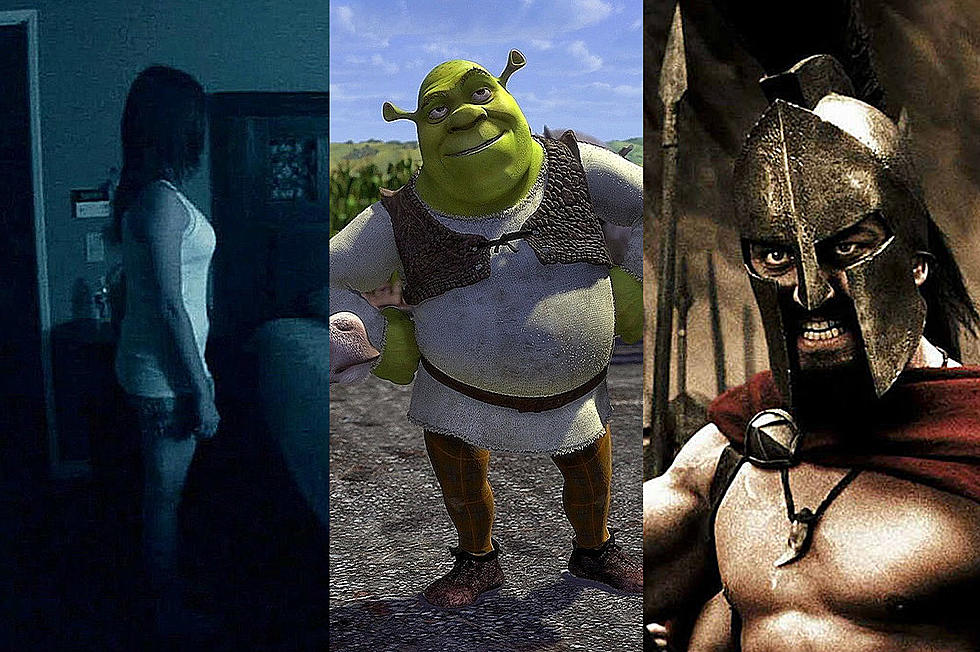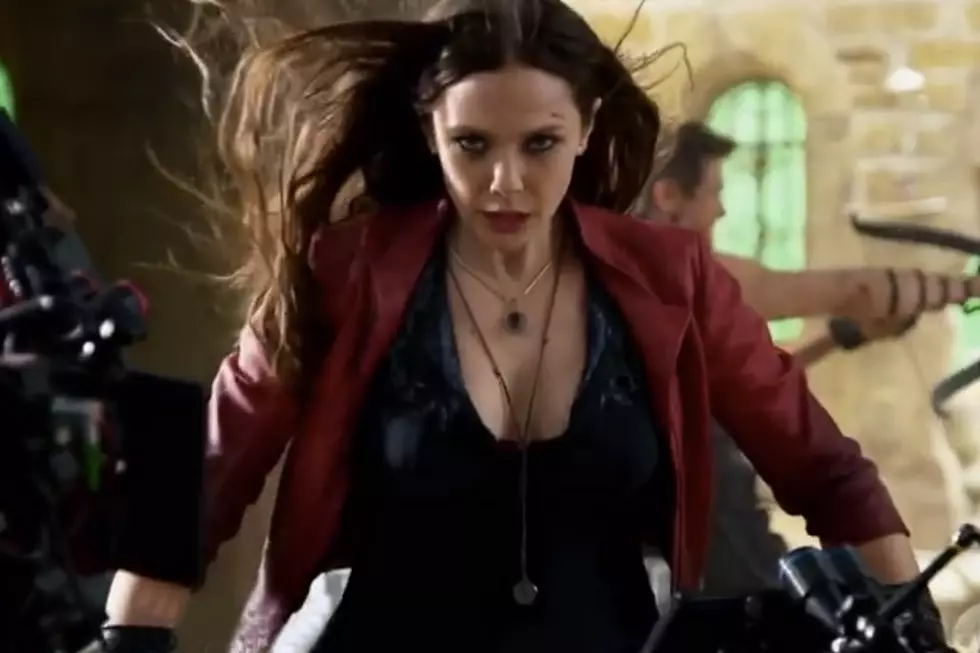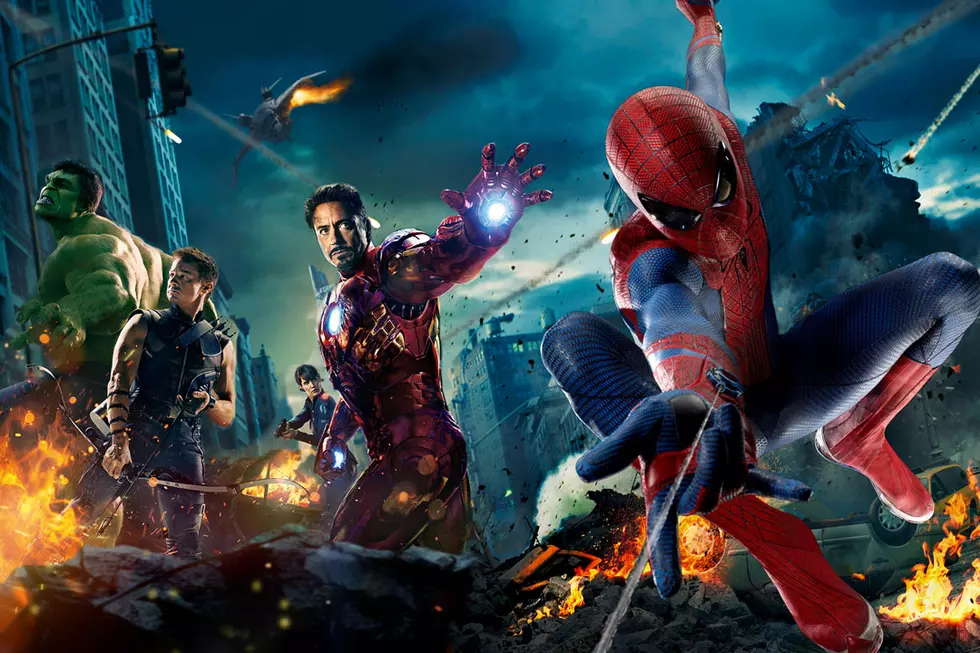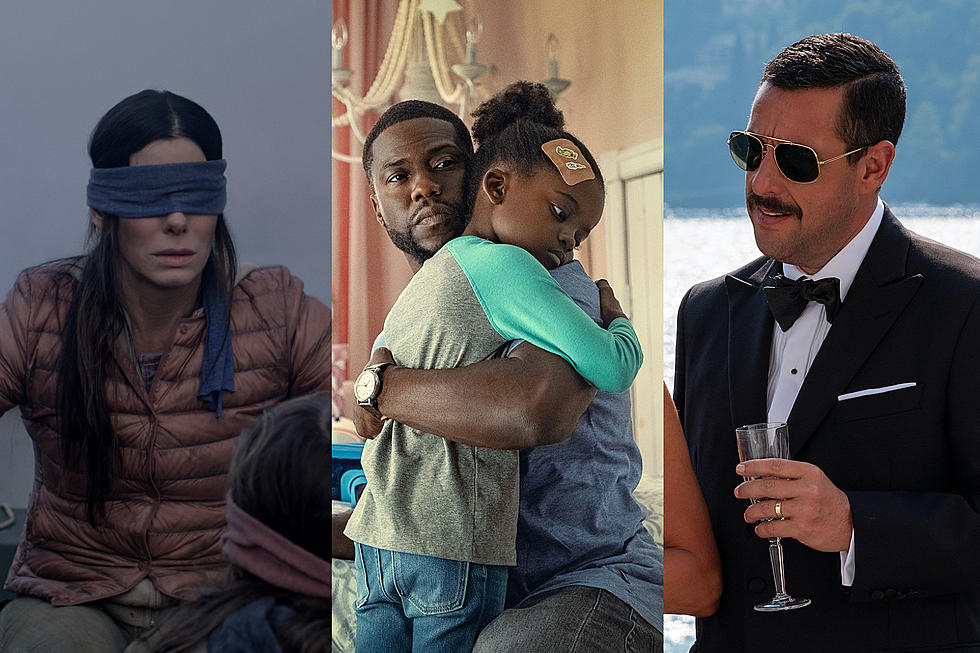
‘Avengers: Age of Ultron’ Is the Ultimate Joss Whedon Movie Whether You Like It or Not
This post contains spoilers for every Joss Whedon show and movie, including Avengers: Age of Ultron.
Avengers: Age of Ultron is the eleventh film in Marvel Studios’ ongoing quest to dominate your disposable income for the rest of your moviegoing life, the biggest, loudest and most expensive chapter yet in what is quickly becoming a triumph of Hollywood marketing and corporate one-upmanship. But it is also, somehow, totally the work of writer/director Joss Whedon, whose clear voice — honed over decades spent working in film and television — rings through all of the noise. While The Avengers was directed by Whedon, its messier and crazier sequel is truly, at its heart, The Joss Whedon Film.
Before he became the consigliere of the Marvel Cinematic Universe and found his work being watched by several billion dollars worth of people worldwide, Whedon was one of television’s greatest heroes and one of Hollywood’s secret weapons. As a TV producer, he created and ran some of the best shows of all time, including Buffy the Vampire Slayer, Angel and Firefly. His film credits are fewer and less distinguished, but he was one of the go-to script doctors throughout the ‘90s, contributing uncredited work to movies like Speed, Twister and X-Men. Although he was adored by his small, passionate and often overeager fan base, Whedon was a niche talent. A writer too good, too specific and too nerdy to become a superstar.
And then nerdy got cool and the rest is history.
It’s entirely possible to enjoy Avengers: Age of Ultron as a big, silly action movie filled with superheroes who punch real good, and charming, disturbingly attractive people in form-fitting clothing. It’s also entirely possible to find it to be an exhausting, overindulgent experience that’s far too mired in continuity and too desperate to set up the next 10 movies in Marvel’s ambitious “Phase 3” schedule. You are also allowed to fall into the middle ground because you are allowed to have mixed feelings on things.
Joss Whedon tells tales of personal responsibility. You are what you are, so go do something with it. Save the world? Get your homework done on time? It’s all relative.
However, the one thing that cannot be denied is that this is a Joss Whedon movie through and through, an encapsulation of everything he has done so far and a platform for his favorite ideas. The scope couldn’t be more different, but the second outing of Earth’s mightiest heroes has more in common with an episode of Buffy than it does with its fellow summer blockbusters. It is, first and foremost, the work of an auteur. Granted, an auteur given $200 million and access to the most profitable characters of the 21st century.
Like it or love it or meh it, Avengers: Age of Ultron is the work of an artist, even if that artist is constantly throwing elbows at commerce.
Here’s the thing about Whedon’s creative output: his most successful work has always been crafted out of the Marvel mold. Even before the titles of his movies had Marvel above the title, his heroes, heroines and the villains they faced felt like the product of the post-Spider-Man generation of pop fiction. Like the best superheroes, Buffy Summers and her friends fought evil and saved the world while struggling with the day-to-day grind of high school life (and later, the even more frightening world of Adulthood). Before he assembled the Avengers, Whedon assembled Angel Investigations, a supernatural crime-fighting outfit where the super-powers of each individual team member couldn’t protect them from personal bickering, parenthood and heartrending grief. Like the most thrilling Marvel adventures, Whedon forces his heroes to live in a world where the trials of ordinary life are given the same attention as villains who can tear the world asunder. Spider-Man had to battle the Green Goblin so he could get Aunt May the medicine she so desperately needed – Buffy had to take down a mad scientist so her fellow students could actually enjoy their prom.
This melding of the mundane and extraordinary has defined Marvel Comics for the past half century, but it also defines Whedon. Plenty of writers can create a tough superhero whose powers allow him or her to save the world. What makes Whedon special is that he wants to know what the guy standing next to that hero is thinking. He wants to get under the skin of the characters who exist as foils in other stories, to comprehend the pain that must accompany the “normal” people who fight alongside the otherworldly and the exceptional. Xander and Gunn struggle in every fight while Buffy and Angel dust vampires without breaking a sweat. Meanwhile, in the biggest movie of 2015, Captain America and Thor casually decimate countless adversaries while Hawkeye has to take a breather and come to terms with the fact that he’s battling a robot army on a floating city while he’s only armed with a bow and arrow.
And like so many of Whedon’s heroes, he runs headfirst into a fight that seems guaranteed to kill him. Whedon knows Iron Man won’t die. He knew that Buffy Summers wouldn’t stay dead when the show with her name in the title got a sixth season. But he knows that Giles could die. He knows that Wesley could perish. Hawkeye, the most mortal and human of the Avengers, has the smallest chance to make it out of any combat situation. We come for the superheroes, but we stay for the guys who rise up in the face of something totally insane, take a deep breath, and say “Okay, I’ve got this.”
Of course, Joss Whedon is also known for brutally killing the characters who rise to the occasion. Pietro “Quicksilver” Maximoff, who died taking more than few bullets so Hawkeye could live, is just the latest in a long trail of corpses Whedon has left in his path. And this is where Whedon and Marvel diverge. While the comic book world resurrects the dead without a care in he world, Whedon understands the pain and permanence of death.
Buffy the Vampire Slayer could have cooked up a dozen ways to bring Tara back from the dead, but forcing Willow to live with her pain made for far more compelling television. The death of Wash, the beloved comic relief, during the climax of Serenity was a reminder that every battle should hurt, even the fictional ones. And then there’s Agent Phil Coulson, who came back to life on Agents of S.H.I.E.L.D. As satisfying as it can be to watch Clark Gregg headline his own action series, that choice undercuts message of The Avengers. It flies in the face of why Whedon kills off so many of his beloved characters.
No one takes pleasure in watching the likes of Anya, Wesley and even Quicksilver die sudden deaths, but their sacrifice informs what Whedon’s fiction is all about. The extraordinary worlds of Buffy and Angel and Firefly and Marvel are home to countless people who can’t fly or fight or transform into green monsters. They exist in the shadow of giants. Their perspective, their lives and deaths, are so much funnier, so much more complex, and so much more tragic than the people who see a world-threatening villain and consider it another day at the office. It’s the expendable people, the humans, who are so valuable and unique.
That’s why Ultron’s psychotic plan to create an extinction-level event and wipe out humanity transcends a typical supervillain plot. We spend much of Avengers: Age of Ultron watching the action through the eyes of Clint Barton, Natasha Romanoff and puny Bruce Banner. These aren’t superheroes. They weren’t cooked up in labs and they can’t simply fly to another realm when things get hairy. This is their world and the people on the streets, the people in danger, are them. Whedon knows that even a single death is a tragedy, that every civilian killed in an alien or robot assault is as complex or lovable as Hawkeye or Agent Coulson. It’s no wonder that Whedon takes so much time to showcase the Avengers evacuating cities and saving innocent people. Whedon may be a snarky bastard who’s quick with the quips and the cynicism, but he knows the value of a human life. If a normal person, an unpowered character, is just as vital as the superhumans, then humanity is worth saving. As a whole, we totally deserve to have Sokovia dropped on our heads. As a collection of individuals, we are all Xanders, Gunns and Maria Hills waiting to happen.
You can always tell a Whedon production from the witty banter he writes for his characters, his knack for creating dynamic female characters, and the way he inverts so many common tropes. But look under that surface and you’ll find a storyteller who is so deeply human, he wants to crack open every god and find the human within. More importantly, he wants to crack open the guy standing next to that god and find the hero within. Whedon tells tales of personal responsibility. You have what you have – superpowers, a spaceship, a sharp wit – so go do something with it. Save the world? Get your homework done on time? It’s all relative.
You are the hero of your own story. When you die, will the people jump on Twitter to complain?
[Ed. note: In an odd coincidence, the Monday after Avengers: Age of Ultron opened in theaters, Joss Whedon deleted his Twitter account.]
More From Antenna Mag










